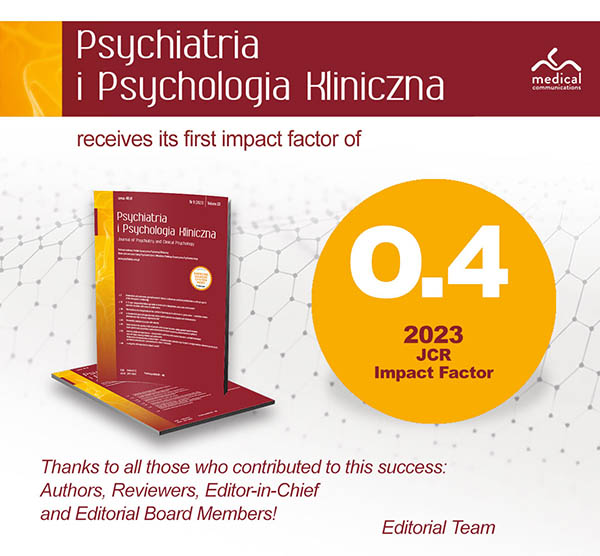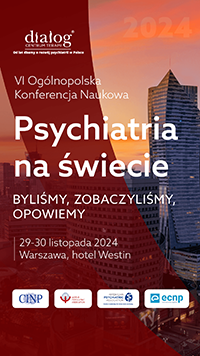Reasons for adverse pregnancy outcomes among women with schizophrenia
Ewa Barasińska‑Tarka1, Iwona Kłoszewska2
 Affiliacja i adres do korespondencji
Affiliacja i adres do korespondencjiAim of paper: Investigate the factors influencing health of infants born to women suffering from schizophrenia. Material and methods: It has been designed as a retrospective subjective evaluation of mental state of women with diagnosis of schizophrenia during pregnancy. The survey was conducted among 64 women aged 20‑44 years, who were diagnosed before becoming pregnant. Each enrolled patient underwent psychiatric examination first, then filled questionnaire constructed by the author of the study. Results and conclusions: The results that were obtained confirmed the hypothesis that children of women with schizophrenia more often than those born by healthy women have serious health complications, and infant mortality rate in this group is higher than in the general population. Better outcomes have been demonstrated in obstetric married women, living with her husband during pregnancy, women who had not experienced miscarriages in past, who gave birth on time and became pregnant during the remission of symptoms of schizophrenia. Women who have been diagnosed with schizophrenia earlier (on average 5 years) gave birth to healthy children more often than women, who received diagnosis later. The compliance to the treating psychiatrist recommendations and the first pregnancy are both favourable prognostics of good health of the newborn child. Other analysed factors haven’t had significant influence on children’s health.















